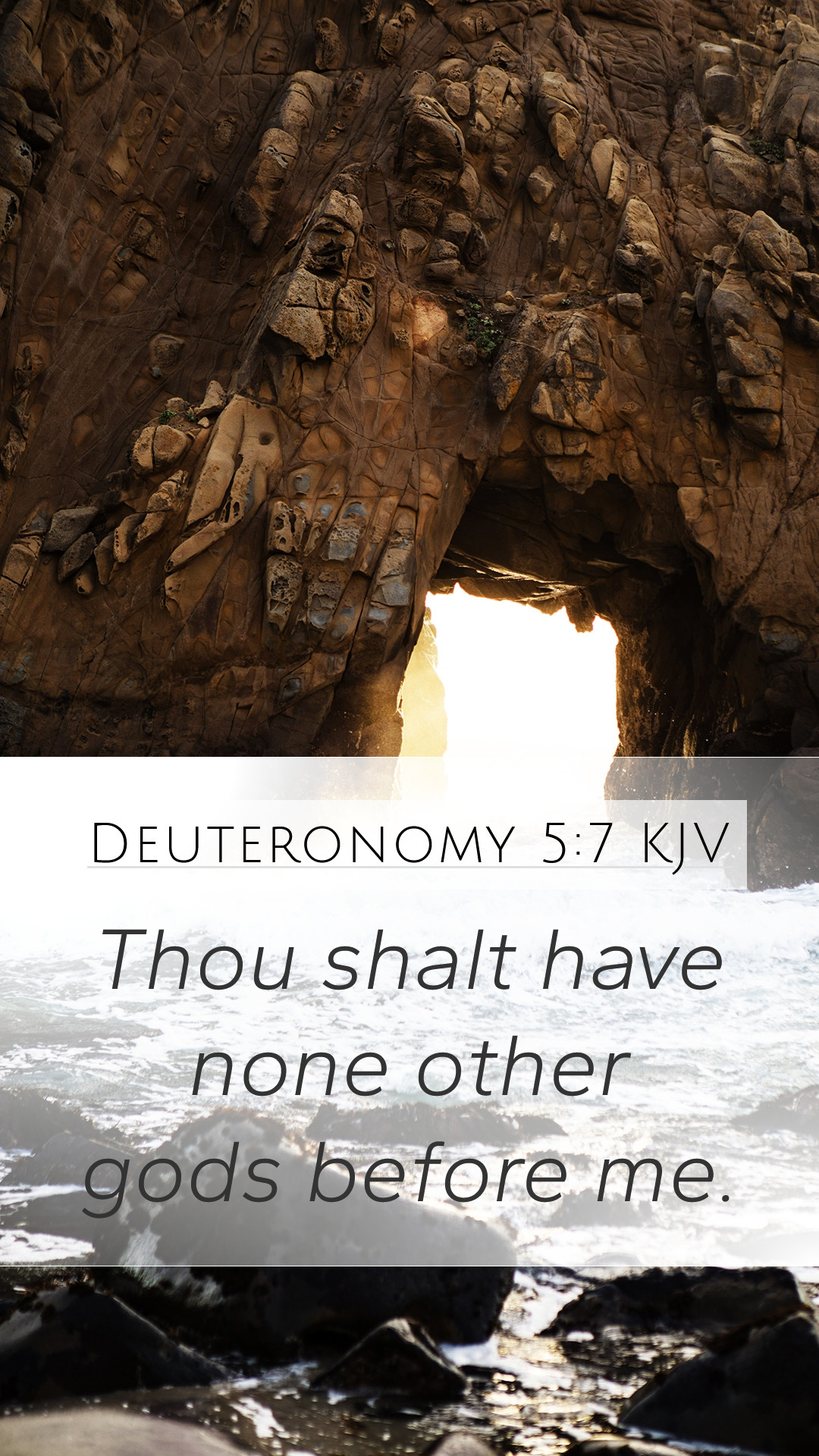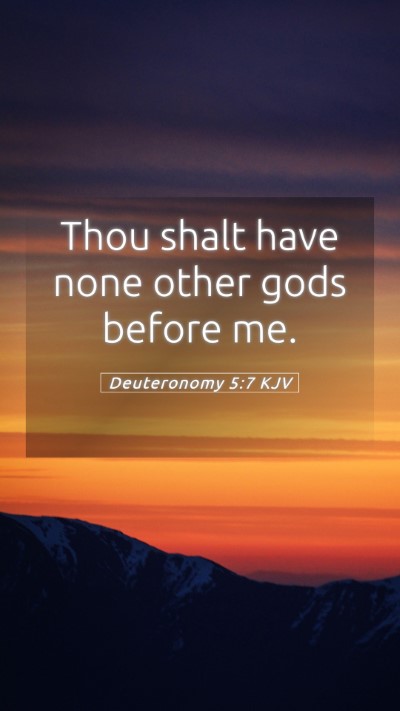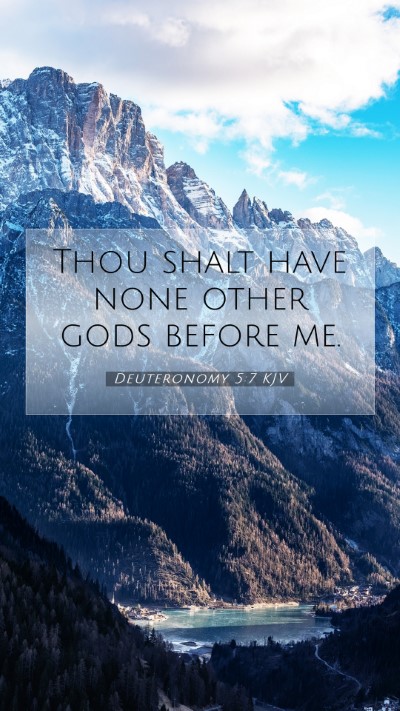Understanding Deuteronomy 5:7
Deuteronomy 5:7 states, "You shall have no other gods before me." This verse is a fundamental tenet of the Israelite faith, emphasizing the exclusive worship of Yahweh, the God of Israel. Below, we explore various interpretations, meanings, and explanations based on renowned public domain commentaries.
Bible Verse Meaning
This directive reveals God's demand for loyalty and singular devotion. It addresses the heart of idolatry, which is often seen as a persistent issue throughout biblical history. The phrase “no other gods” indicates that the Israelites are to have no competitors in their worship, a theme strongly underlined by Matthew Henry in his Commentary on the Whole Bible.
Insights from Commentaries
- Matthew Henry: He emphasizes the importance of God's sovereignty and the command's role in maintaining moral order. He suggests that breaking this command leads to spiritual depravity and societal chaos.
- Albert Barnes: Barnes discusses the historical context in which this command was given, noting the prevalence of polytheism in surrounding nations. He critically assesses how the Israelites were warned against adopting such practices.
- Adam Clarke: Clarke’s interpretation focuses on the concept of priority in one’s life and thoughts. He suggests that this command speaks to the internal rather than just external observance, essentially asking if God holds the central place in our hearts.
Bible Verse Interpretations
There are various layers to the interpretation of Deuteronomy 5:7, which can be examined through the following lenses:
- Theological Perspective: This command establishes a covenant relationship between God and His people, highlighting His role as the central figure in their lives.
- Moral Perspective: The verse serves as a moral compass for believers, guiding their actions and priorities.
- Practical Perspective: In daily life, this verse instructs believers to evaluate their loyalties and priorities, ensuring that nothing takes precedence over their relationship with God.
Application of the Verse
Applying this verse to daily life can be challenging yet rewarding. Consider these application points:
- Evaluate your life for possible “idols” or distractions that may be taking your focus away from God.
- Engage in regular Bible study to deepen your understanding of God's nature and character.
- Participate in discussions within Bible study groups, reflecting on the significance of having no other gods.
Cross References
This verse relates to several other scriptural passages that reinforce its message:
- Exodus 20:3: "You shall have no other gods before me." – a parallel commandment.
- Isaiah 45:5: "I am the Lord, and there is no other; apart from me there is no God." – emphasizes God's uniqueness.
- Matthew 4:10: "Worship the Lord your God, and serve him only." – Jesus reaffirms this command during His temptation.
Final Thoughts
Understanding Deuteronomy 5:7 is essential for those seeking to deepen their faith and comprehension of Scripture. By reflecting on the insights provided by esteemed commentators and relating the verse to one's life, believers can cultivate a devoted and undivided heart towards God.


